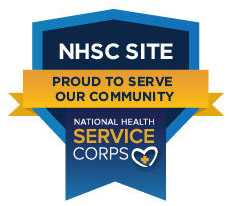Suicidal Ideation

What constitutes suicidal ideation? In short, when thoughts of suicide become obsessive, compulsive and serious consideration and planning comes into play. People who feel hopeless in this regard can develop a suicide plan, which is the point where they are at high risk of taking their own life.
At our behavioral health center, help those with suicidal ideation on a regular basis, and over the years, we’ve noticed many patterns.
Suicidal ideation typically coincides with:
 Substance abuse disorder;
Substance abuse disorder;- Depression, anxiety, and other mental illnesses;
- Prior suicide attempts;
- A family history of mental health problems, substance abuse disorder, and suicide;
- Having firearms in the home;
- Medical illness;
- Exposure to other people’s suicidal behavior;
- Being in jail or prison.
Suicide is also more common in those between the ages of 15 and 24 or over 60.
There are many ways of coping with suicidal thoughts and ideation, but if the problem is serious, the best course of action is to seek professional help.
We offer a wide variety of therapeutic and pharmacological treatments—typically combined—that can and have helped people recover from suicidal crisis.
Self-Harm
 Remember that self-harm is rarely an actual suicidal gesture. Rather, it is more often a coping strategy or a cry for help, although the latter case is more rare as most people who self-harm do so privately.
Remember that self-harm is rarely an actual suicidal gesture. Rather, it is more often a coping strategy or a cry for help, although the latter case is more rare as most people who self-harm do so privately.
Self-harm typically involves cutting, scratching, and/or burning oneself. Other less obvious forms of self-harm may be drug and alcohol abuse and other deliberate lifestyle choices that cause or could potentially cause harm to oneself.
We’ve helped many people who self-harm. Over the years we’ve observed many signs that someone may be self-harming, including:
- Becoming withdrawn, quiet, and more reserved than usual;
- Becoming less involved in their usual activities;
- Having rapid changes in mood;
- Getting easily upset or angry;
- Having suffered through a significant event such as a bad breakup or the death of a family member;
- Failing in their performance at school or work;
- Having unexplained cuts or scratches and thus wearing long sleeves or sweaters, even on a hot day.
What You Should Do If Someone You Love Is Self-Harming

-
- Be supportive—ask how he or she is doing and how you can help.
- Try your best to really listen and understand them, even if the topic makes you uncomfortable.
- Even if you don’t understand them or agree, it’s important to validate their feelings. However, this isn’t to say you should validate the behavior, but don’t criticize them for it either—simply recognize that they are experiencing a lot of pain and that you will be there to help.
- Tactfully suggest the person seek appropriate therapy.
- Help them understand there are things they can do—like join a support group, see a mental health specialist, talk with friends and family members and learn coping strategies for managing suicidal thoughts if they are feeling suicidal.
 If you or someone you love is self-harming, a mental health professional at our wellness center is here to help. Very few things have helped those of suicide risk than a support network, along with treatments like dialectical behavior therapy, new strategies for self care and a personalized treatment plan.
If you or someone you love is self-harming, a mental health professional at our wellness center is here to help. Very few things have helped those of suicide risk than a support network, along with treatments like dialectical behavior therapy, new strategies for self care and a personalized treatment plan.
Please fill out the form below and we’ll be in touch.










